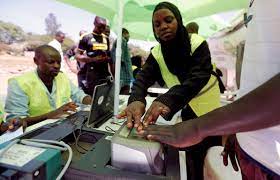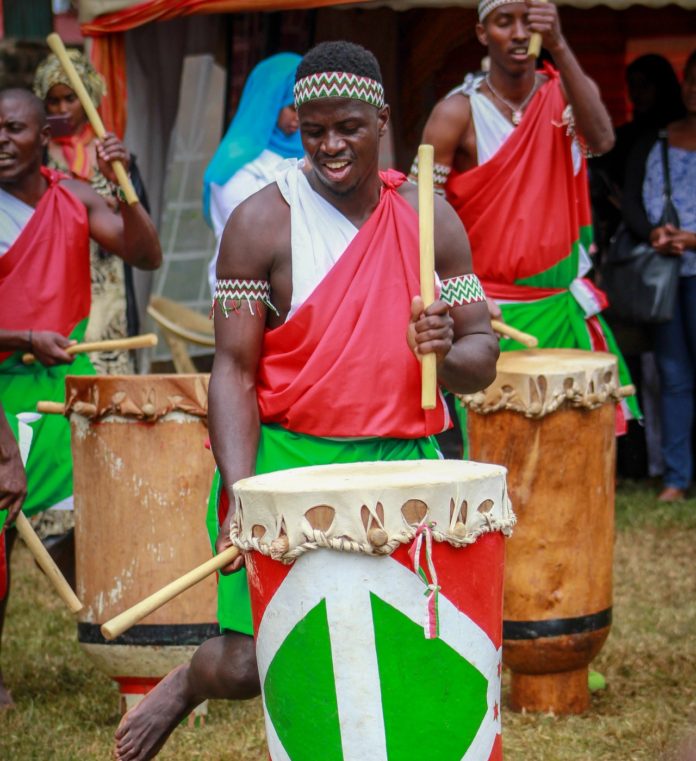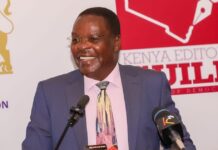|
Getting your Trinity Audio player ready...
|
By Tabitha Oeri
Nairobi, Kenya:’Matthew Kebaso’ (not his real name), an administration police officer had to ship his family from Nairobi’s Kibera Slum to his rural home in Kisii in 2007 for safety’s sake.
“Locals were already walking about with talks of doing anything if their candidate of choice did not win that year’s elections. And we were already being mobilized for deployment in different voting centers in the country. So of course I could tell something could go wrong,” explains Kebaso.
He further adds, “Buying food was a challenge even for the locals. Especially those whose tribe was not dominant in the area. Shopkeepers closed their shops early in fear of falling victim to their neighbor’s due to different choices of candidates.”
“Tribal clashes heightened tensions in the area,” Kebaso recalls. However, his case is only a snippet of the ghosts of those who were affected in 2007/2008 Post Election Violence.
As Kenya approaches the highly anticipated August 2022 general elections, some signs seem to point to very little effort when it comes to fostering peace-keeping strategies before and after the ballots.
In retrospect, past elections have brought about the scarring of the nation, the worst case being the 2007 post-election violence which was fueled by tribal tensions
More than 1000 people lost their lives and up to 600,000 people got displaced, some of whom still live in IDP camps to this day.
Elections Observation Group (ELOG) coordinator Mulle Musau points out that the tribe factor has remained a central issue in determining the electoral outcomes.
“If you keenly watch the political happenings you will clearly see ethnic mobilization taking place. The North is organizing politically as is the Coast. OKA has positioned itself to bargain from the leadership of their regions,” explains Musau.
The political analyst and ELOG coordinator further add that “The fight for the mountain is basically about harvesting the Kikuyu vote. Each leading candidate will attempt to make deals with the tribal gatekeepers for support.”

This further indicates that voting along tribal lines is a deep-rooted issue engraved in the minds of many.
Nevertheless, Joyce Chepkemoi Cheruiyot, a victim of the 2007/08 post-election violence continues to shed light on why making political affiliations based on tribe is backward thinking.
“I almost got killed for a vote and at that moment I wondered where the politicians we were being killed for were,” Cheruiyot sadly recalls.
“I’d like to tell Kenyans to avoid tribalism, violence, and unnecessary riots. You might participate in a riot and then go back home having lost a leg in the process,” Cheruiyot advises.
However, Phinehas Abungana from Malava, Kakamega county says he will do just that. “I’m going to vote for Musalia Mudavadi because other tribes have never supported people from my community.”
“Other tribes always die with their own through thick and thin so as a Luhya, why shouldn’t I do the same?”, Abungana questions.
In this regard, some people and organizations have set out to be peace ambassadors to help curb a repeat of the 2007/08 post-election violence.
Amongst these organizations is the International Alert who earlier on August 17, 2021, in collaboration with the Kenya Correspondents Association created a forum to discuss matters of peace.
During the focus group discussion consisting of nine journalists from various parts of Nairobi and two coordinators from International Alert, tribalism stood as the key component to political violence.
“Wrong packaging of news stories and messages could trigger conflict amongst people with different political views,” noted one of the participants.
According to Maseke Rioba, a communications officer at Nubian rights forum and a podcaster, “The media is glamourizing the tension between political rivals and without knowing it, is slowly poisoning the minds of voters.”
“Politicians’ main concern seems to be their re-election”, claims Rioba further adding that, “With politicians, there is little effort to preach peace. Most are more concerned with individual interests and may not care about the consequences of their actions.”
She further points out that, “The media has the ability to sufficiently play the role of peacekeeping and conflict prevention through Interventions such as the practice of peace journalism. However, not enough of this is being done.”
On the other hand, Boniface Mukolwe, a 28-year-old resident of Gachie predicts probable violence in the forthcoming elections.
“The only peace-keeping talk I’ve heard so far is from the church. Nothing from the politicians. The budget of Kenya sets aside funds for peacekeeping, but surely enough, This money ends up inside a few people’s pockets. We have never had peace in Kenya. Our political leaders are the masters of conflict and violence” says Mukolwe.
“What we have in Kenya is latent conflict and it needs just a crack to erupt. We all experience political reconciliation and people pretend to be living in peace yet the problems that lead to conflicts during elections are never addressed,“ the 28-year-old added.
With the ongoing 30-day Voter registration program, Kenyans still remain uncertain but still hopeful of next year’s elections outcome. Valerie Owino, a 23-year-old freelance journalist says “ I strongly believe that Kenyans learned from the previous post-election events and can’t allow such to re-occur.”
She further adds that “The issue of the economy has been affected by the COVID-19 pandemic so no one would like or rather love to face the more harsh side of life come next year. There is still the push and pull on the drivers of peacekeeping but I believe come next year, everything will work out.”
Adding to the conversation, Sheila Andoi, a 22-year-old says peace-keeping promoters could cause the post-election reactions to lean either way.
“Their efforts can truly help spread the message of peace and enable people to desire calmness and peace in the elections. But they can also now bring tension and make people anticipate violence before and after the elections,” Andoi explains.
People hence need to realize that without peace everything turns upside down, as is evidenced by the ghosts of Post Elections Violence. Lest we forget.
Joyce Chepkemoi Cheruiyot, a burn victim of the 2007 post-election violence suggests, “We need peace in each and every corner of Kenya regardless of who gets the presidency. Let’s just vote and go straight home, wait for the tally, and not fight. It’s not worth it.”















Truly, election is not something we as kenyans should be fighting for. You realize in the end that it’s us the common mwananchi that get to suffer while those we fight for are safe at home… Our only prayer is that people realize we are too mature for that and struggle to keep the peace. Commendable work btw.
Brilliant piece. Good style of writing. Rich and relevant quotes from the public. Good flow of subject under exploration.
I watched a YouTube video where this guy had a theory of why Africa will probably never develop like other continents have. Countries in other continents have been divided clearly according to their climates. But African countries have no particular order in terms of geographical borders. Which is why the few developed nations in Africa have achieved success, because they have the same climatic region running throughout the whole country. For example Egypt is mostly desert, so the people there are unified by the fact that the climate has them ‘speaking the same language’ in terms of their economic activities. This made a lot of sense to me. Food for thought!
Comments are closed.